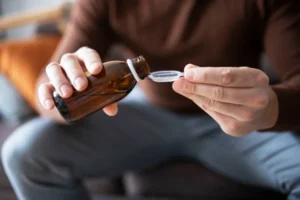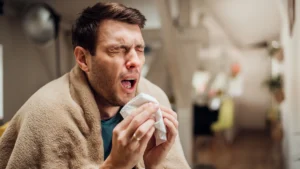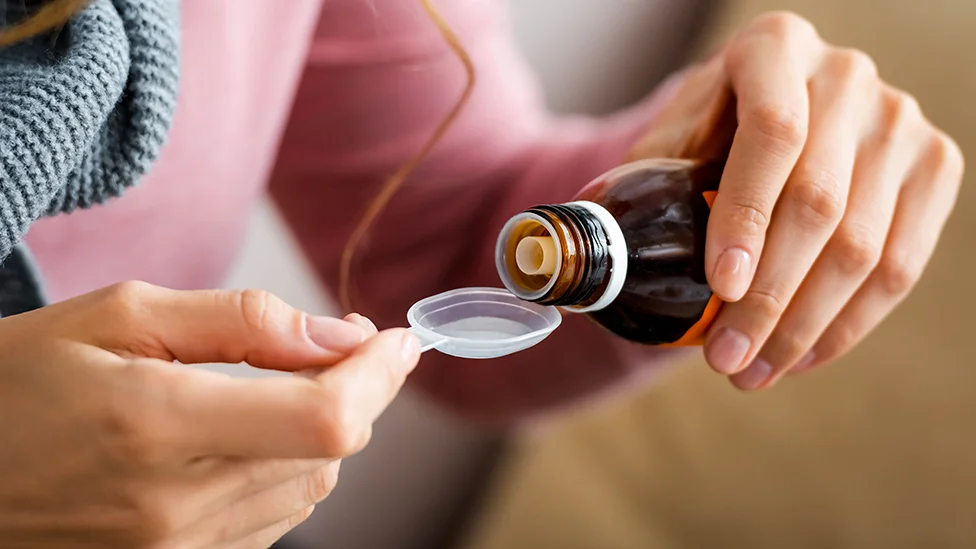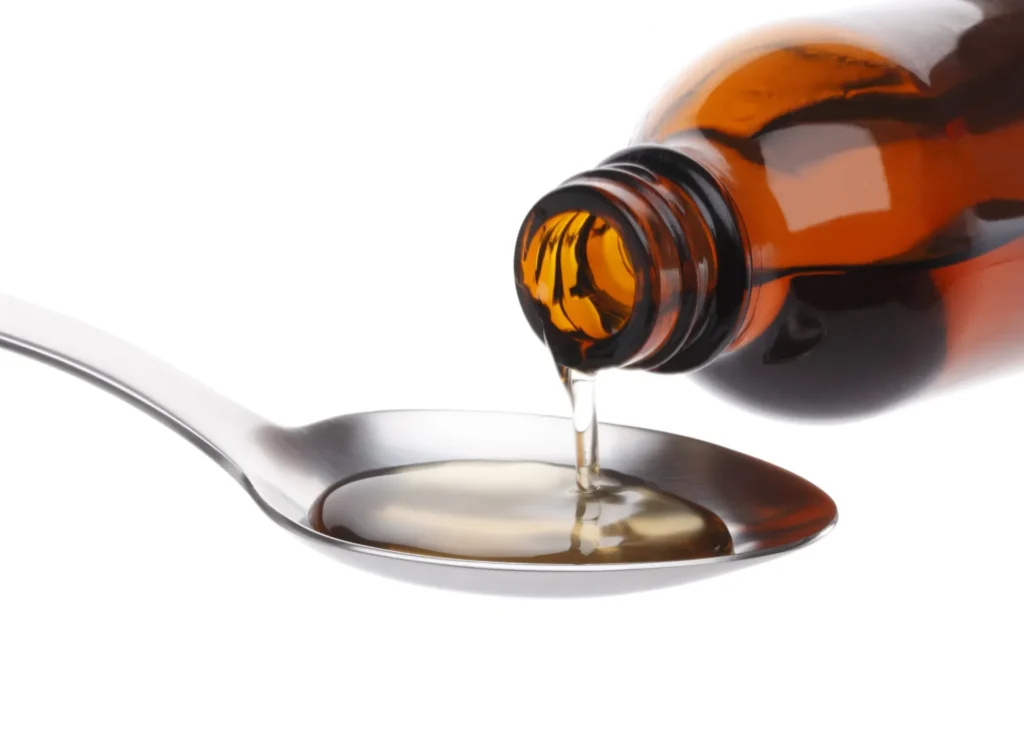Have you ever reached for a bottle of Robitussin to soothe a persistent cough? It’s a common go-to remedy for those battling cold and flu symptoms. However, what starts as a harmless attempt to relieve discomfort can sometimes escalate into a more serious issue. But what happens when the use of Robitussin goes beyond the recommended dosage?
In this blog, we’ll delve into the often-overlooked topic of Robitussin addiction. We’ll uncover the effects of excessive use, recognize the symptoms of dependency, and explore effective treatment options. Whether you’re concerned about yourself or a loved one, understanding these aspects is crucial. So, let’s take a closer look at the safe use of Robitussin and what to do if usage becomes a concern.
Contents
Understanding Robitussin and Its Intended Use
 Robitussin is a widely recognized brand name for a range of over-the-counter cough and cold medications designed to alleviate various symptoms associated with respiratory infections. Understanding its formulations and intended uses is crucial for safe and effective use.
Robitussin is a widely recognized brand name for a range of over-the-counter cough and cold medications designed to alleviate various symptoms associated with respiratory infections. Understanding its formulations and intended uses is crucial for safe and effective use.
Formulations and Uses:
- Robitussin DM
Primarily used to suppress coughs and relieve chest congestion. It contains dextromethorphan (DXM), a cough suppressant, and guaifenesin, an expectorant that helps loosen mucus. - Robitussin CF
Targets coughs, congestion, and flu symptoms, including fever and body aches, combining dextromethorphan with guaifenesin and phenylephrine, a nasal decongestant. - Robitussin AC
Available by prescription, it includes codeine, an opioid cough suppressant, along with guaifenesin.
Intended Use:
- The specific combination of active ingredients in each formulation is tailored to treat symptoms ranging from simple dry coughs to more complex conditions involving mucus and nasal congestion. Robitussin is intended for short-term use to manage symptoms of the common cold and flu.
Understanding the active ingredients and their intended effects is important not only for achieving symptom relief but also for preventing misuse. Always adhere to the recommended dosages and consult a healthcare provider if over-the-counter treatments do not alleviate symptoms or if symptoms worsen.
The Risks of Excessive Robitussin Use
 Taking higher-than-recommended doses of Robitussin can lead to severe health risks and physical dependency. Here are the key dangers associated with excessive use:
Taking higher-than-recommended doses of Robitussin can lead to severe health risks and physical dependency. Here are the key dangers associated with excessive use:
- Dextromethorphan (DXM) Toxicity: High doses can induce hallucinations, altered perceptions, and dissociative states, posing serious psychological and physical risks.
- Codeine Addiction and Overdose: Formulations with codeine can lead to opioid addiction and the potential for life-threatening overdose, characterized by respiratory depression and severe drowsiness.
- Serotonin Syndrome: Overuse of DXM may trigger serotonin syndrome, with symptoms like fever, agitation, and muscle twitching, which can be fatal.
- Liver Damage: Excessive consumption of products containing acetaminophen can cause acute liver failure, particularly dangerous and potentially fatal.
- Heart Problems: Certain Robitussin products may increase blood pressure and heart rate, risky for those with cardiovascular conditions.
Dependency Risks:
- Physical Dependence: Regular use, especially of opioid-containing products, can lead to dependence, with withdrawal symptoms upon cessation.
- Psychological Dependence: The euphoria from high doses of DXM can lead to repeated misuse to recreate these effects.
It’s critical to adhere to the dosage guidelines provided and seek medical advice if you or someone you know is struggling with Robitussin misuse. Professional treatment is advised to safely address both medical and psychological aspects of addiction.
Recognizing Symptoms of Robitussin Addiction
Identifying an addiction to Robitussin involves being aware of both behavioral and physical signs that suggest misuse of the medication. Here’s a concise list of symptoms to watch for:
Behavioral Signs:
- Compulsive Use
- Continued Use Despite Harm
- Preoccupation with the Drug
- Neglect of Responsibilities
- Social Withdrawal
Physical Signs:
- Increased Tolerance
- Withdrawal Symptoms
- Changes in Physical Appearance
- Health Issues
Recognizing these signs can be the first step towards seeking help. If you or someone you know exhibits any of these symptoms, it’s important to consider professional guidance to address Robitussin addiction effectively.
What Happens If You Take a Lot of Robitussin?
Consuming large amounts of Robitussin, particularly those formulations containing dextromethorphan (DXM), can lead to serious health consequences. Both the immediate and long-term effects can be severe, and in some cases, life-threatening.
Immediate Health Effects:
- Confusion
- Impaired judgment
- Severe dizziness
- Nausea
- Vomiting
- Suppressed breathing
- Increased heart rate
Symptoms of DXM Poisoning:
- Toxic Psychosis: High levels of DXM can induce a state of toxic psychosis, with symptoms resembling schizophrenia, such as paranoia and disorganized thinking.
- Serotonin Syndrome: This potentially life-threatening condition can occur if Robitussin is taken in conjunction with other serotonergic drugs, leading to symptoms like agitation, fever, and seizures.
Recognizing these risks is vital for safely managing the use of Robitussin. If you suspect an overdose or severe adverse reactions from taking high doses of Robitussin, it’s imperative to seek emergency medical attention immediately. Regular use should always align with medical advice and adhere to prescribed dosages to avoid these serious health issues.
Treatment Options for Robitussin Dependency

Detoxification:
- Medical Detox: This is often the first step in treating Robitussin addiction, particularly if high doses are used. Medical detox helps manage withdrawal symptoms under the supervision of healthcare professionals, ensuring safety and reducing the risk of relapse.
Therapeutic Interventions:
- Cognitive Behavioral Therapy (CBT): CBT is highly effective in treating substance use disorders. It helps patients identify and change negative thought patterns and behaviors related to drug use, develop coping strategies, and learn to handle triggers and cravings.
- Motivational Interviewing (MI): MI enhances an individual’s motivation to change and is particularly effective in the early stages of addiction treatment to engage patients actively in their recovery process.
Support Groups:
- Peer Support Groups: Groups like Narcotics Anonymous (NA) provide community support and a platform to share experiences and strategies that can aid recovery. These groups emphasize peer support and accountability, which are vital for long-term recovery.
- Family Therapy: Addiction impacts not just the individual but their entire family. Family therapy can address the dynamics that may contribute to substance use and help family members develop healthier interactions and support mechanisms.
Maintenance and Aftercare:
- Medication Management: In some cases, medications may be prescribed to alleviate withdrawal symptoms or treat concurrent mental health conditions.
Lifestyle Adjustments:
- Healthy Habits: Establishing a routine that includes exercise, proper nutrition, and adequate sleep can improve physical and emotional health, supporting recovery.
- Relapse Prevention Education: Learning about triggers, managing stress effectively, and developing healthy coping mechanisms are essential parts of preventing relapse.
Professional guidance is critical in navigating the complexities of addiction treatment. If you or someone you know is struggling with cough syrup addiction, seeking help from addiction specialists or a treatment center can provide the necessary support for overcoming this challenge.
Conclusion
If you or someone close to you is grappling with an addiction to Robitussin or any other substance, remember, you’re not alone in this struggle. At QuitMantra, we understand the complexities of addiction and offer tailored programs that address both the physical dependencies and the emotional challenges associated with recovery.
Visit QuitMantra today to learn more about our services and how we can assist you in taking the first step towards a healthier, addiction-free future. Book your trial therapy session or join our deaddiction program and start your journey to recovery now.
